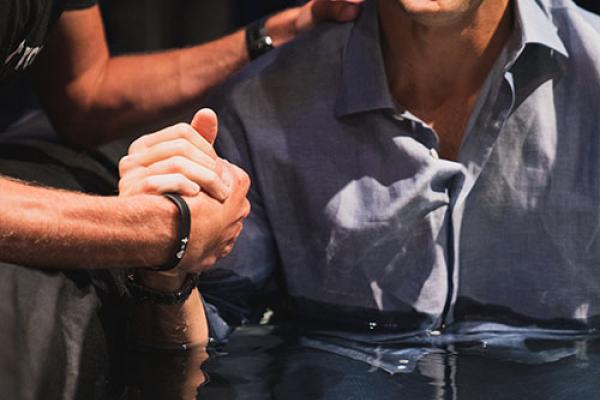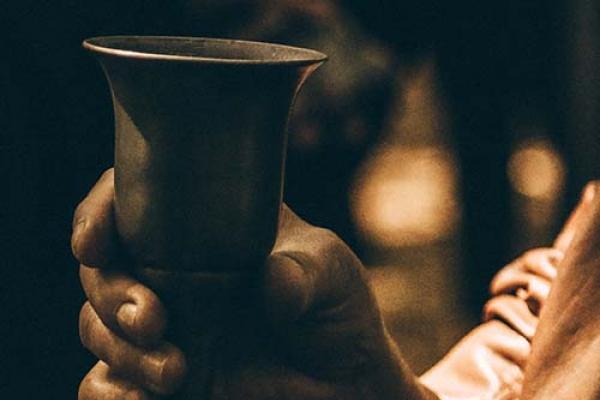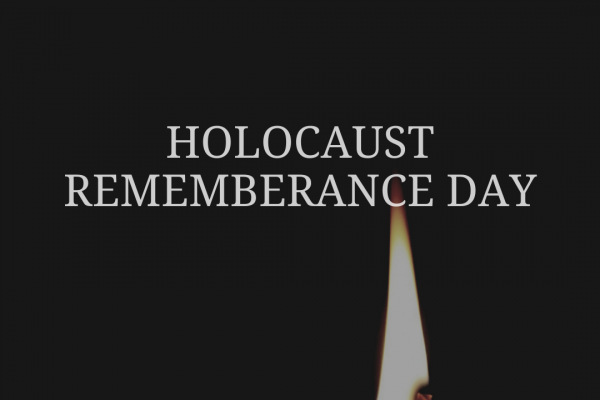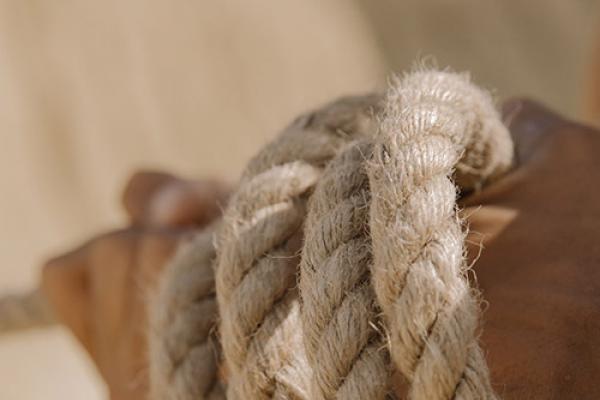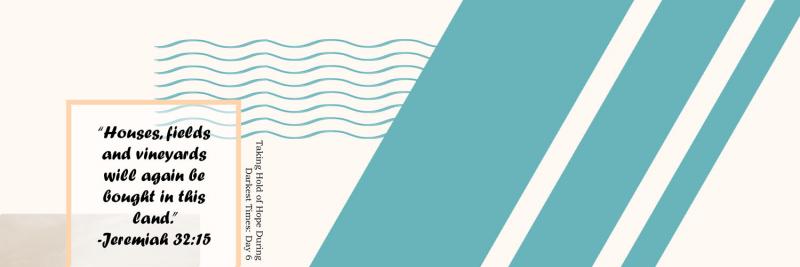
Jeremiah said, “The word of the Lord came to me: 7 Hanamel son of Shallum your uncle is going to come to you and say, ‘Buy my field at Anathoth, because as nearest relative it is your right and duty to buy it.’
8 “Then, just as the Lord had said, my cousin Hanamel came to me in the courtyard of the guard and said, ‘Buy my field at Anathoth in the territory of Benjamin. Since it is your right to redeem it and possess it, buy it for yourself.’
“I knew that this was the word of the Lord; 9 so I bought the field at Anathoth from my cousin Hanamel and weighed out for him seventeen shekels of silver. 10 I signed and sealed the deed, had it witnessed, and weighed out the silver on the scales. 11 I took the deed of purchase—the sealed copy containing the terms and conditions, as well as the unsealed copy— 12 and I gave this deed to Baruch son of Neriah, the son of Mahseiah, in the presence of my cousin Hanamel and of the witnesses who had signed the deed and of all the Jews sitting in the courtyard of the guard.
13 “In their presence I gave Baruch these instructions: 14 ‘This is what the Lord Almighty, the God of Israel, says: Take these documents, both the sealed and unsealed copies of the deed of purchase, and put them in a clay jar so they will last a long time. 15 For this is what the Lord Almighty, the God of Israel, says: Houses, fields and vineyards will again be bought in this land.’
...
25 And though the city will be given into the hands of the Babylonians, you, Sovereign Lord, say to me, ‘Buy the field with silver and have the transaction witnessed.’”
26 Then the word of the Lord came to Jeremiah: 27 “I am the Lord, the God of all mankind. Is anything too hard for me?
Jeremiah 32:6-15, 25-27
Shabbat Shalom! On this Saturday – a day when Jewish families and communities around the world cease from their work and remember that they do not belong to their to-do lists or to the systems of this world, but rather to the Lord – may this passage of scripture and these words inspire your hearts to ‘dream big’ during a time when the thinking of those around us may be very narrow. This portion of Jeremiah’s prophetic ministry occurred when he was literally imprisoned, and when the city of Jerusalem around Him was being ravaged by the Babylonian armies just as the Lord had warned. Houses were being burned, families were being murdered or carried away captive, and the outlook was only disaster and loss. No doubt, the thinking of the Israelites around Jeremiah was focused on survival and, at best, on minimizing the human and financial loss they would experience due to the inevitable unrelenting disaster which had come upon the city and the nation. And for good reason! All the indicators said this was the time to hunker down and stay alive.
Sound familiar?
Yet, in the middle of this grim scene, the Lord asks Jeremiah to make an extravagant investment. And to do so in a formal and public way in the audience of his companions who were focused only on survival. And not only that, but to document the extravagant investment in such a way as it would be remembered by those who would come in later generations. To purchase a plot of land – at a time when land was being urgently sold if not violently destroyed – as a prophetic declaration that the promises of God to rebuild and restore would surely come to pass despite the immediate disaster.
The humanity of Jeremiah in this passage should bring us comfort. Jeremiah, ‘knowing’ that the entire real estate transaction is from the Lord, still cries out to Him for understanding. Such a large investment during such dark times? ‘Lord, I am obeying what You told me to do…but why now, in the midst of this crisis?’ God answers Jeremiah’s question with another, and far more important, question: ‘Behold (Hinei – Look and see, Jeremiah!) I am the God of all flesh – the Creator of every person on the face of the earth – whether they acknowledge it or not. Is there anything too hard for Me?’
The answer to Jeremiah’s doubts regarding the radical obedience and sacrificial investment God called him to in the midst of societal disaster was the nature and power of God Himself. And the answer was, of course, a resounding ‘No.’ Nothing is too hard for the Lord. The Lord proceeds to confirm to Jeremiah what he already saw around him—that death and loss would certainly visit the city and the people – but that the Lord, the God of all flesh, would turn the situation around for good for His people. Better days were on their way! Days when a people, humble and repentant, would remain and would return, and that what was lost would be restored.
Jeremiah’s public real estate transaction was a radical declaration to those around him of his HOPE that nothing was too difficult for His God, and that where others could see only to the horizon of loss and chaos, Jeremiah could see days ahead of heavenly promises fulfilled, of revival, and of restoration.
At a time when the counsel of this world is largely (and understandably) to hunker down and survive dark times, what extravagant act of hope and faith is God asking you to make? To what counter-intuitive, counter-cultural act of faith-filled obedience is God calling you? What investment – either financial investment, relational investment, time investment in an estranged or lonely family member, Kingdom investment – is God asking us to make which will demonstrate to those around us that we fully believe that this is not the end, that God has promises yet to fulfill, that he is ABLE to restore what has been lost, and that there are dreams the Father has placed in your heart for His glory which have yet to be realized. Let’s pray for strength and grace in the waiting, for faith for radical obedience in the most difficult of times, and let’s rest this Shabbat in HOPE because there is nothing too difficult for our God.





